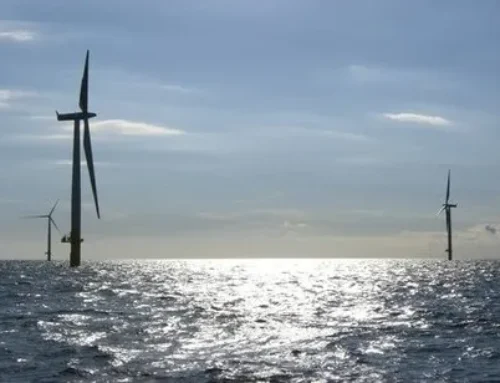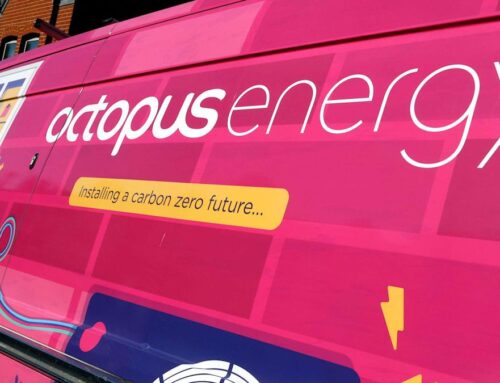EPA’s Top Lawman Calls on Trump to Keep Enforcement Tough
January 16, 2025
The law professor who became the Biden administration’s top environmental cop has a warning for President-elect Donald Trump: going soft on enforcement will force the EPA to make hard choices about which communities deserve to be safeguarded and which don’t.
“For whom are you going to cut environmental protection?” David Uhlmann, the recently departed chief of the EPA’s enforcement section, said in an interview. “Which environmental protections are you going to eliminate? Are you going to say that not everybody needs to have safe drinking water?”
High-profile cases of contamination and pollution such as the water crisis in Flint, Mich., the TPC plant explosions outside Houston, and the Norfolk Southern train derailment in eastern Ohio underscore the need for sustained enforcement in all parts of the country, Uhlmann said.
“East Palestine is better off because we were there,” he said. “So you want to cut EPA budgets? What are you going to do the next time there’s a train derailment?”
Trump has said that, under his presidency, environmental quality actually improved across the nation. To Uhlmann, “if that’s his goal, he should support everything we did during my tenure at EPA to strengthen the enforcement program. He shouldn’t cut a single position, he shouldn’t drop a single initiative, and he shouldn’t curtail our efforts to make sure that EPA is protecting public health and protecting the environment.”
EPA inspections, penalties, and civil case conclusions all dipped in Trump’s first term. But agency officials at the time generally didn’t herald those facts as accomplishments to be proud of. Instead, they mostly said enforcement was still rigorous, and the numbers were only down because they were focusing on fewer cases, but more significant ones.
The Trump-led EPA’s enforcement results were likely also colored by new rules that required more approvals from agency officials during the enforcement process. A 2018 directive required case teams to alert regional administrators before referring matters to the Justice Department.
Uhlmann resigned his post Dec. 31. The Office of Enforcement and Compliance Assurance has since been led by Cecil Rodrigues in an acting capacity.
Biggest Wins
Asked to reflect on the key achievements of his tenure, Uhlmann mentioned the office’s new focus on mitigating climate change, promoting environmental justice, and addressing contamination from per- and polyfluoroalkyl substances (PFAS) and coal ash. He also singled out the hiring of 400 to 500 new staffers since 2022 and efforts to strengthen relationships between EPA headquarters and its 10 regional offices.
Other important milestones include shifts in the way the enforcement department does business, such as a new policy to ensure its civil and criminal enforcement teams work together more closely and an initiative to make sure urgent cases are addressed more quickly, Uhlmann said.
But he also said work remains undone in all those areas. In many cases, Uhlmann said, he simply ran out of time: he had to wait more than two years for the Senate to confirm him, leaving him with only a year and a half as the confirmed assistant administrator.
As a result, some projects ended up not getting as much attention as Uhlmann would have liked. For example, he said he’d hoped to make structural changes so the enforcement office could work more closely with each of the national program offices.
“But frankly, I came late, and I needed to focus on getting enforcement back on track and lifting up the enforcement work,” he said. “I had good relationships with my partners in the other offices, but breaking down those silos and developing stronger cross-agency partnerships wasn’t something I could do as much as I had hoped.”
Even so, in December the enforcement office reported that, in fiscal 2024 it concluded 1,851 civil cases and collected $1.7 billion in administrative and judicial penalties—both the highest levels since fiscal 2017. Over the year, 121 criminal defendants were charged, the most since fiscal 2019.
Challenges
Uhlmann said those results are due in large part to a broader effort to rejuvenate a career civil service corps that had grown demoralized over time.
But he now worries that some of those staffers may leave the agency, in light of hostile comments from Trump and his associates about government employees. For example, Russell Vought, Trump’s choice to head the Office of Management and Budget, said in a private speech in 2023 that he wants “bureaucrats to be traumatically affected. When they wake up in the morning, we want them to not want to go to work.”
In response, Uhlmann said he told career staff in a farewell message shortly before he left that he wanted them to stay on and continue to uphold the nation’s environmental laws.
“Having said that, I don’t think anybody should martyr themselves,” he said. “I would not tell anybody that they have to stay if working conditions are unbearable.”
Far from slashing the enforcement department’s numbers, Uhlmann said it must continue to be built up. For example, while OECA’s criminal enforcement program now has 180 special agents nationwide, that’s still a very low number considering the team is responsible for all criminal violations in all 50 states, he said.
“Just think about how many law enforcement officials there are in just a small town police department,” Uhlmann said. “EPA has an extraordinarily small program, and frankly, it should be much bigger.”
Uhlmann, who had been serving as a law professor at the University of Michigan before joining the Biden administration, said he’s weighing his options for his next career move. That could mean a return to academia, but he’s also considering shifting to the nonprofit world and the private sector.
“We need the private sector,” he said. “Government’s commitment to environmental protection can waver across administrations. So we need a commitment to environmental protection and sustainability in the private sector.”
Search
RECENT PRESS RELEASES
Related Post



